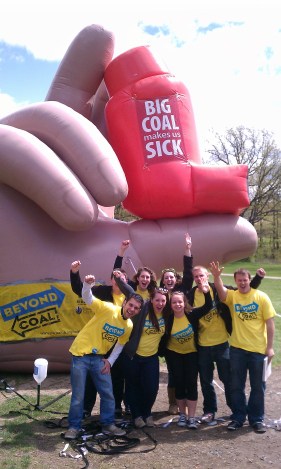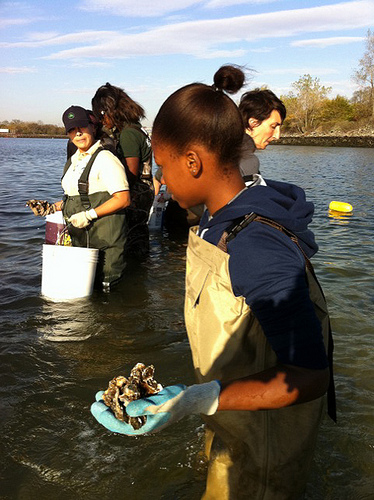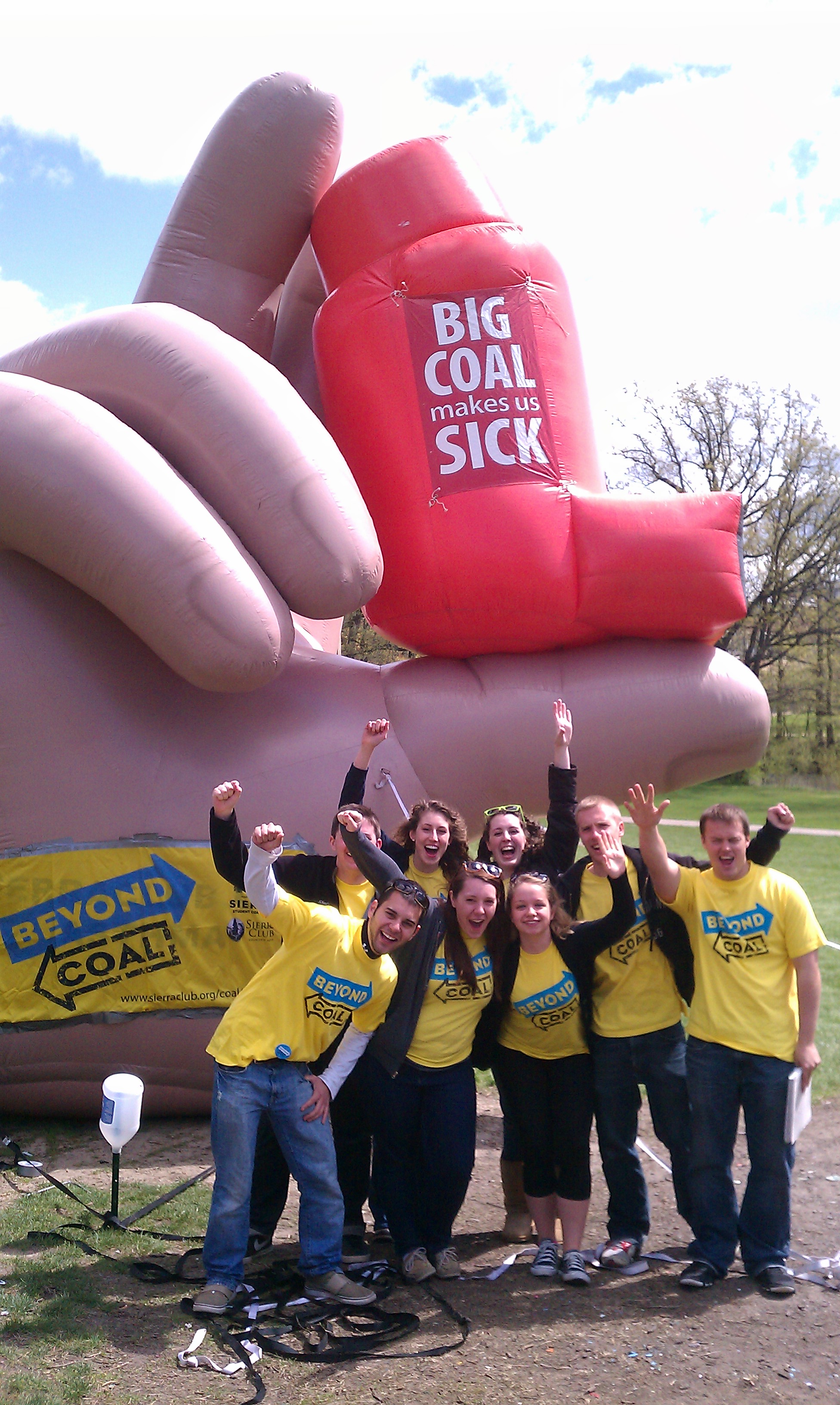
MSU students protest the school's inadequate Energy Transition Plan.
Nationwide, students are leading the way in pushing their universities and colleges to invest in innovative clean energy solutions. There is a growing momentum on college campuses to move our nation off dirty, 19th–century fuels that are making people sick.
Twenty colleges and universities have won fights to phase out coal plants on their campuses, thanks in large part to the hard-hitting Campuses Beyond Coal campaigns of Sierra Student Coalition. These plants are responsible for dangerous pollution, including mercury, carbon dioxide, arsenic, and lead, and can lead to more severe asthma attacks, bronchial infections, and cancer.
Students can help reinvent the American economy by pressuring school administrations to invest in clean, safe, and reliable energy on campuses from California to Connecticut. Here’s the latest example of this amazing work by students — from Michigan State University and Sierra Student Coalition Organizer Anastasia Schemkes:
Michigan State University (MSU) operates the largest coal plant on a university campus in the nation, burning approximately 200,000 tons of coal per year. Fortunately for us, it also has one of the largest Campuses Beyond Coal campaigns in the nation, with MSU Beyond Coal, which has collected over 10,000 petition signatures to retire the dirty, aging plant over the course of their two-and-a-half-year campaign.
As a result of student pressure, the university released an “Energy Transition Plan” this semester that is meant to be its road map toward cleaner energy for the campus. Unfortunately, the plan lacks, well, any real plan at all. In many ways the ETP is a smokescreen for furthering fossil fuel use at the school while talking a lot about clean energy in only vaguest terms.
Students have responded with action, especially as the plan is headed to the Board of Trustees for approval. Along with an 18-foot-tall (yes, close to two stories!) inflatable inhaler, students held a press conference today about the negative health impacts of burning coal.
“I know firsthand how awful it is to have an asthma attack so bad that I’ve been hospitalized and stuck in a bed with machines helping me breathe, rather than being in class or out with friends,” said senior and leader of MSU Beyond Coal Talya Tavor, who has been suffering from asthma since she was 2 years old. “Coal causes hundreds of thousands of asthma attacks every year, which is why MSU must be a leader by cutting their toxic air pollution and switching to healthier energy sources starting now.”
In addition to the inhaler sitting just behind “The Rock” — an iconic campus landmark they had to camp out all night to paint and defend — the group created a field of 37 10-foot-tall sunflowers to represent the 37 deaths per year in Ingham County from coal-related illnesses, and a banner representing the 10,547 student petitions the group has collected asking the administration to retire the dirty coal-burning plant on campus.
Later tonight they’re hosting a Clean Energy Forum with energy experts from across the state discussing how Michigan can create jobs and improve the economy by being a clean energy leader. They’ll also be joined by Bill McKibben, renowned author and activist who you might know from 350.org or those massive protests against the Keystone XL tar-sands pipeline, who is Skyping in to cheer them on. (You can catch a live stream of the event starting at 7 p.m. EST.)
All of this is leading up to the Board of Trustees meeting on Friday, where the administration will formally present its deeply flawed plan. It’s so bad that the students who were initially invited to participate in the Steering Committee refused to sign off on the final version.
Michigan State has a long way to go to be a clean energy leader, but students are still hopeful.
“We know MSU can be a clean energy leader. Our vision is not just for cleaner air on campus, but to put Spartans at the forefront of building a prosperous clean energy economy for Michigan and being a model for our peer institutions,” said Tavor.
And you can help — take action today by signing a petition to the university’s Board of Trustees urging them to take real steps to move MSU to 100 percent clean energy starting now.




